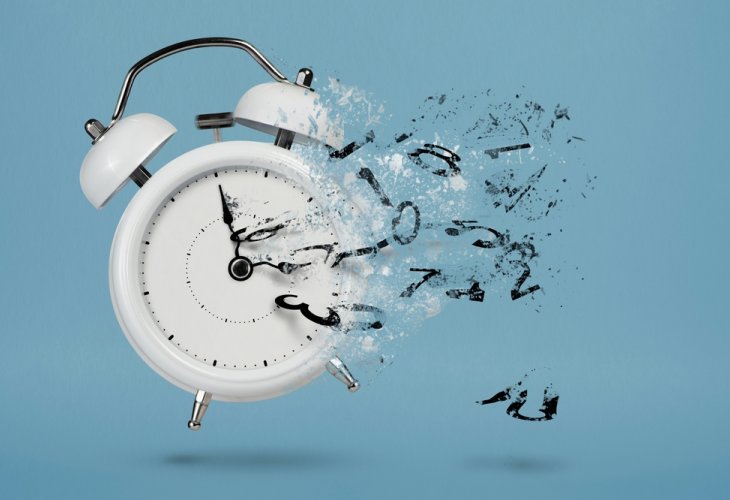Health and Nutrition
The Power of Trust in Healing: Why Belief Can Shape Medical Outcomes
Free treatment, patient confidence, placebo effects, and end-of-life prognoses — how emotional trust profoundly influences physical healing and recovery
 (Photo: shutterstock)
(Photo: shutterstock)There is a well-known saying in the Talmud: “A doctor who heals for free is worth what he charges.” In other words, even if the person who caused harm offers the injured party free medical treatment, the injured person has the full right to refuse. The reasoning is simple: treatment that is free may be perceived as being worth exactly that — nothing.
At first glance, this assumption has a straightforward meaning: a doctor who does not receive payment may not exert himself fully, and the results may suffer accordingly. But there is a deeper layer as well.
Based on what has been said, we can understand that even if the doctor providing free treatment ultimately gives one hundred percent — working devotedly and wholeheartedly, ignoring the fact that he is not being paid, the treatment may still be less effective. This is because the patient does not fully trust a doctor who treats for free.
Medical healing does not depend only on natural therapeutic methods, but also on the patient’s trust in the physician. When a patient pays for treatment, he believes he will receive professional and dedicated care, and this belief itself increases the treatment’s chances of success.
By contrast, when treatment is provided free of charge, the patient may subconsciously doubt the doctor’s professionalism. That doubt can influence the outcome, because the emotional dimension plays a significant role in the success of physical medical treatment.
Indeed, we find this idea discussed in Responsa Shevut Yaakov (Part I, 86), regarding a doctor who is in mourning. The question raised is whether he may leave his home to treat a patient, and whether he may receive payment during his period of mourning. The author concludes that the doctor is permitted to leave his home to treat a patient in need, but he is forbidden to accept payment.
Nevertheless, Shevut Yaakov emphasizes that the doctor should agree in advance on a fee, and only afterward refrain from taking the payment. Why? Because if the patient were to know from the outset that the doctor does not intend to accept payment, the patient’s trust in the treatment might be weakened, thereby reducing the treatment’s effectiveness. Here we see clearly that even when the doctor himself knows he will not take payment, and even though this knowledge has no effect on the quality of care he provides, the patient’s trust alone can influence the outcome.
The same principle works in the opposite direction as well. Time and again, it has been proven that a placebo — an inactive “dummy” medication, can produce the same results as a real drug, solely because of the patient’s belief in the treatment’s effectiveness. Even though the medicine contains no active ingredient, belief alone can lead to self-healing.
How Much Time Is Left to Live?
Another area in which the close connection between a patient’s physical and emotional state becomes evident places doctors before an extremely difficult dilemma in cases of terminal illness: Should they present the patient with a prognosis — an estimate of how the disease will progress and how long the patient is expected to live?
On the one hand, it is understandable that someone who, according to natural expectations, may soon leave this world would want to know how much time remains, in order to use it meaningfully. On the other hand, experience shows that patients in nearly identical medical conditions often receive different prognoses, with each being “predicted” a different life expectancy — and in many cases, those predictions end up fulfilling themselves.
Moreover, many patients to whom doctors did not specify a remaining lifespan lived far longer than physicians initially expected.
The resolution of this ethical question does not belong within the scope of this discussion, as it is complex and far-reaching. Still, one important point deserves attention: often, the very act of telling a patient that he has only a limited time to live creates intense stress and anxiety. This emotional strain can cause physical harm, weaken the body’s internal systems, and lead the “prophecy” to fulfill itself.
Imagine a person fleeing from a snake. He runs as he has never run before, driven by fear, with the snake chasing him. How long can a person run like this? An hour? Two hours? Now imagine that same person being forced to run and flee from the snake for months on end.
Even if there were no physical limitation preventing him from running continuously for such a long time, he would inevitably collapse due to the psychological stress and pressure of the relentless pursuit.
This, in essence, is what happens to a person whose life is given an “expiration date” — at least in the eyes of the doctors. The stress and anxiety generated by such information can themselves cause serious harm, potentially weakening the patient to the point of leading, God forbid, to death.

